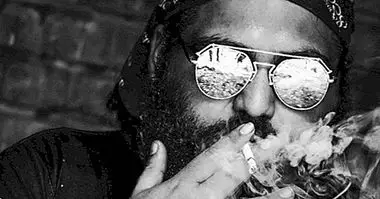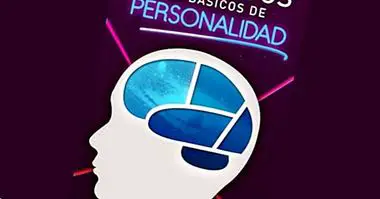Types of people: 13 basic personality characteristics
One of the most famous branches of psychology is the Psychology of individual differences , also known as Differential Psychology.
This is responsible for investigating about the psychological differences that exist between individuals and, sometimes, about the way in which these are related to other individual characteristics of a non-psychological type. In other words, allows us to distinguish between types of people attending to different characteristics of his body or his behavior.
However, throughout the history of this psychological field different criteria have been created with which to classify different types of people. In fact, there is not a single model or personality test, but several, which are used depending on the objective sought. For example, there is the 16 PF, the model of the 5 great personality traits, etc.
The main types of people
In this article we will make a general review of the main types of person defined by several of the most commonly used personality dimensions . That means that each category of which a portion of these types of people can live inside of oneself in certain quantities, although one of them will stand out more than the rest, depending on each case.
1. Extraverts
This type of person is defined by the constant need to look for sources of activation through interaction with the environment . In practice, this means that extraverted people enjoy the company of others, because dialogue (verbal or non-verbal) is a source of constant stimuli. In the same way, they usually prefer to move to stay in one place.
2. Introverts
Although they are often confused, introverts are not, technically, shy people, although very often they are both. What defines introverts is that they do not need to be exposed to external stimuli constantly , and that if these are very intense or extend over time, they tend to cause discomfort before the rest of people.
Introverts live towards their mental life, their imagination and their memories, that is, the actions that can be performed only through mental processes that do not produce muscle movements.
3. Emotionally stable
This is one of the types of people with a greater capacity to manage difficult or stressful moments, since this type of experiences they do not have such a noticeable impact on their way of thinking, feeling and acting . However, this does not mean that they must necessarily be cheerful. In fact, in some cases they may seem the opposite and present emotional flattening.
4. Rebels
Although these days it seems that the word "rebel" is only used in advertising campaigns and marketing strategies, it is also part of one of the most used personality measurement instruments: Cattell's 16PF. This type of person tends to be more receptive to ways of thinking and doing that are shocking and innovative , and shows much less respect for authority than the rest.
5. Conservatives
Conservative people also appear in the 16PF, and are the antithesis of the rebels. They tend to take for good the customs and ways of doing that have been practiced for a long time and they distrust the news.
6. Cyclothymics
Cyclothymia is a concept that is used to refer to a high affectivity and a great sensitivity in general. This type of persons are able to experience the most intense emotions from the most ordinary and insignificant experiences. For example, they might cry with some ease when remembering a movie.
7. Schizothymic
These types of people are the opposite face of the cyclothymics, and they experience emotions in a very weak way. In addition, they show a tendency to isolation, among other things because informal interaction with others does not give them such a sense of well-being.
This is a characteristic that, when it is very extreme, is linked to schizophrenia, although in all cases it is not necessary to make the transition to this disease.
8. Cunning
Crafty people are characterized by having the ability to see things with a distancing that allows them to discover alternative explanations about what is happening and what may happen. In this way, they will not think from a mental frame that comes to them from other people , but they build their own.
9. Naive
Naive people are the opposite of the clever. They are much more confident and they take for good the ideas and the proposals of the others , thinking from this kind of discourse imposed from the outside.This means that they can be manipulated relatively easily, or that they even apologize for what is not their fault. They are also sensitive to a type of cheating called gaslighting.
10. Obsessive
Obsessive people tend to get stuck in loops of thoughts that they have trouble getting out of, a phenomenon known as rumination. For that reason they have a harder time making decisions and putting their proposals into practice , or they are stagnant because of the paralysis of the analysis.
11. Hostiles
Hostile people experience anger more easily than the rest, and Your tolerance threshold to frustration tends to be low . Therefore, they are especially prone to create conflicting situations and to express their disagreement with the opinions, intentions or attitudes of others. This is a characteristic of the personality that is usually high in people with disorders such as Intermittent Explosive Disorder, although this is a clearly pathological category.
12. Cynics
This is one of the types of people that could be related to pessimism although they are not exactly the same. Cynical people tend to think that others have not noble motivations that they want to hide, although without falling into the extreme of persecutory mania, since they do not place themselves at the center of a specific narration about what is happening around them.
13. Neurotic
Neuroticism is a broad concept that groups several psychological characteristics related to emotions and the way in which stress is experienced, some of which are already represented in the rest of personality dimensions. Specifically, neurotic people are those who have a low tolerance for frustration, experience anger easily, are prone to depression and anxiety, change mood easily and often feel unpleasant emotions such as fear .



















